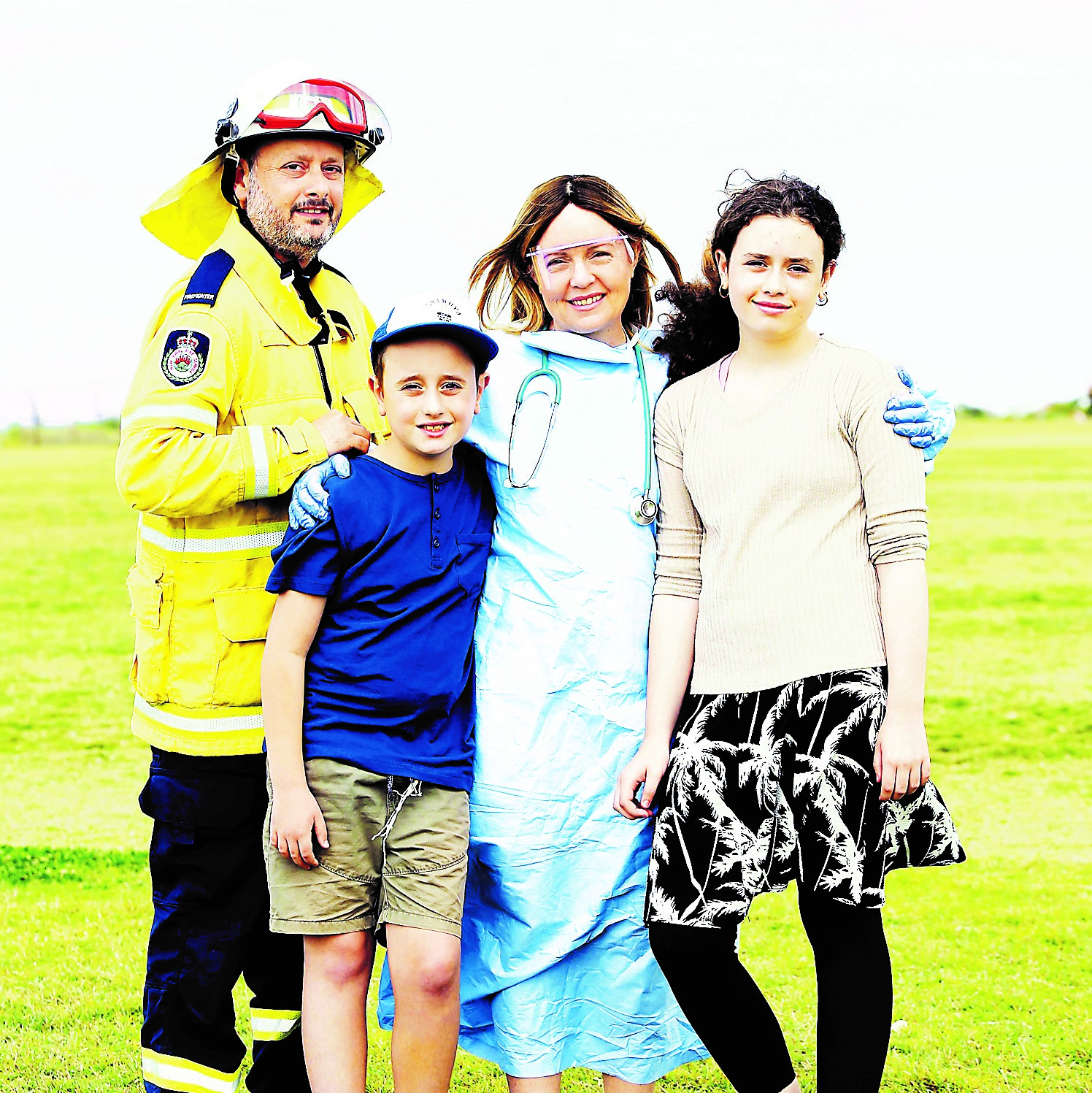
Featured Item

Fighting fires on two frontlines
TALI FEINBERG
Speaking to the SA Jewish Report back in January, the photographer and volunteer firefighter described his near-death experience in one of Australia’s massive bushfires in Buxton, New South Wales. Surrounded by walls of fire and with his vehicle alight, he said the Shema, and expected to be engulfed in flames. But by some miracle, he and his fellow firemen were rescued by another fire crew, who water-bombed the encroaching blaze.
When out fighting fires, “You always have in the back of your mind that things can go wrong very quickly. You always think of your family,” he says. “The most dangerous part of fighting fires is falling trees. Out in the field we call them ‘widow makers’. On numerous occasions, we had near-misses. Every now and then, without warning, you would hear a loud crack and then a boom as a large tree crashed to the ground. That’s probably one of the scariest parts of the job, especially at night.”
Now, his wife, Kate, is in another frightening but very different environment as a registered nurse at one of Sydney’s largest hospitals. “I work mainly in the infusion clinic, treating mostly cancer patients,” she says. “As the COVID-19 pandemic began to escalate, the daily routine at the hospital began to change. Within days, certain wards were shut down and transformed into intensive-care wards in preparation for the influx of the predicted thousands of COVID-19 cases.
“As the number of cases climbed, so did our preparedness. Staff was shuffled around the hospital, and strict treatment procedures and protocols were implemented. We were instructed to treat every patient as if they were carrying the COVID-19 virus, which meant wearing full personal protective equipment including surgical gowns, masks, gloves, and eye/face protection. Every person who entered the hospital was also required to have their temperature checked. The health department estimated that about 45 000 people would contract the virus.”
By 17 June, there were a total of 7 370 cases in Australia, and 102 deaths. “All in all, I’m grateful that Hashem has been looking after us here in Australia, and life is slowly returning to normal,” Kate says.
But the double blow of both parents putting their lives at risk has been hard on their children, Liorah (13) and Avishai (11).
“After we were involved in the fire overrun at Buxton, I tried to keep it quiet from my children. This didn’t last long, as it was all over the news the next day along with the tragic details of the five firemen who suffered serious burns and the two who died when a tree fell onto their fire truck,” says Noel.
“Not only did it send a shiver up my spine, it really spooked Avishai. He became very clingy, and was anxious and emotional whenever I would head off to the fire station. On one occasion, he grabbed me, crying and refusing to let go. Clearly this was all having an effect on him.
“On the upside, whenever I would return, he would greet me with a huge embrace. My daughter, Liorah, seemed to handle it all pretty well, even to the point that she has joined the Rural Fire Service Cadet Program.
“In March, things started to settle down, but then we were faced with heavy storms and days of attending storm-related incidents all around Sydney. And just when we thought normality was returning, we were hit with the coronavirus pandemic.”
Once again, Kate’s work on the frontline has taken a toll on their children, particularly Avishai. “Going to work meant potentially contracting the virus. Both children were scared of that scenario,” she says.
In addition, “both children qualified for the Chidon Sefer Hamitzvot competition in New York, and we were all meant to fly over there in late March. More than 5 000 teens from around the world converge on Crown Heights for a week of activities and outings, culminating in a huge Shabbaton and the final game show. Liorah has participated for the past three years, this was meant to be her fourth time.
“Avishai had studied for almost two years before undertaking the series of gruelling exams. We were all were ecstatic when he qualified for the first time. He was really looking forward to it – quite rightly so. Sadly, two days before we were meant to fly out, it was all cancelled. He was extremely disappointed.”
However, there have been bright moments for the Kessels even when things seemed so dark. They have been supported practically and emotionally by their families, as well as their rabbi and community. “We have seen the best come out in people,” they say. “Everyone has been looking after each other.”




